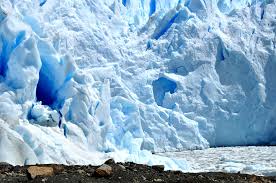记忆方法
将“glacial”分解为“glace”和“ial”。想象冰川(glacial)表面光滑,如同被“glace”般覆盖,而“ial”则暗示其形容词性质,表示与冰有关的特性。通过这样的联想,可以记住“glacial”表示与冰川有关的,或者非常缓慢、冷漠的。
以上内容由AI生成, 仅供参考和借鉴
中文词源
glacial 冰川的
来自拉丁文glacies, 冰,词源同cold.
英语词源
- glacial (adj.)
- 1650s, "cold, icy," from French glacial or directly from Latin glacialis "icy, frozen, full of ice," from glacies "ice," probably from a suffixed form of PIE root *gel- (2) "cold, to freeze" (cognates: Latin gelu "frost;" see cold (adj.)). Geological sense "pertaining to glaciers" apparently was coined in 1846 by British naturalist Edward Forbes (1815-1854). Hence figurative sense "at an extremely slow rate," as of the advance of glaciers. Related: Glacially.
权威例句
- 1. The Duchess's glare was glacial.
- 公爵夫人冷漠地看着。
- 2. Her glacial beauty is magnetic.
- 她冷若冰霜的美令人倾倒。
- 3. Change occurs at a glacial pace.
- 变化极其缓慢。
- 4. Her expression was glacial.
- 她表情冷淡。
- 5. Two main glacial epochs affected both areas during the last 100 million years of Precambrian times.
- 在前寒武纪的最后1亿年中,两个主要的冰川时期对两个地区都产生了影响。
